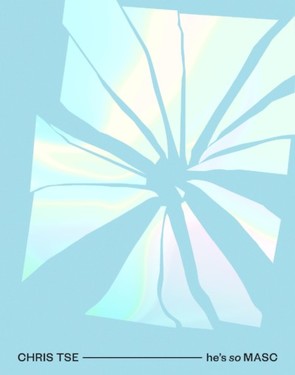
by Chris Tse
Orbiting with wolves requires precision and energy, and Chris Tse’s new poems have both. He leads straight in to it:
The wolves are closing in
on the ballroom while the band members
look out and brace themselves
for the conflict to come. Shit just got real.
They pick up their instruments
and clear their throats.
1 and 2 and 3 and – (‘Intro’, p 1)
There’s space – fear – uncertainty; there’s wolves – and like it or not, the music is about to begin. Perhaps these are the first notes of ‘The saddest song in the world’, a song of six pages and nine parts, which says:
Every night the world shakes as the saddest song adds another
verse to its menu then swallows the moon. (p 36)
At the end of this poem, the saddest song dies and “... You will make out/ for the first time the sound of birds diving through clouds ...” which might (possibly) make the saddest song (almost) worth singing.
Images of distance, of space appear over and over through the collection, and the poet is a man-electron, packed with energy, zipping around one nucleus after another. Or maybe he is the ‘Astronaut’ circling:
Gravity, orbits:
unforgiving attraction
to the things that draw us near but never reach out. (p 61)
But don’t slow down or get too close: it’s not safe out there, all those slavering wolves, each one as dangerous and physical as, perhaps, a lover.
When I was a young wolf undergoing transformation ...
I set my sights on warm hearts whose keepers did not
believe in my kind or in fear. Something in their delusion
dragged at my thirst, ... (‘Lupine’, p 45)
But young wolves are young, not just wolves, and somewhere on a Saturday night, “Grease” is still the word:
we pair off, disappearing
into friends’ parents’ rooms garden sheds
under piers and bleachers ...
Tell me more, tell me more.
(‘Summer nights with knife fights’, p 24)
And more. The poet is constantly moving, from place to place, from person to person, from decision to decision, almost without rest. Is he chasing wolves or escaping from them or looking for one wolf, singular not plural?
He lives in an urban world – no alpine passes glow and no birds sing. When he seeks ‘Release’, he discovers that:
... my city isn’t chaotic enough for you
and I will always hate dirt and camping.
There are adventures for you to collect
on other full-moon nights and you have
your life to write
elsewhere. (p 59)
It’s not an inclusive, close-in world Tse inhabits – it’s a stimulating and exciting one in which he always remembers that wolves can be dangerous, even bearing roses. He finishes his book by saying:
... Just
be happy for
having danced with
the wolf, his clear
solitaire eyes,
his tracks in your
history. Be
brave – press repeat.
(‘Wolf spirit – fade out’, p 82)
Author: Chris Tse
Publisher: Auckland University Press
ISBN: 9781869408879
RRP: $29.99
Available: bookshops

 RSS Feed
RSS Feed
